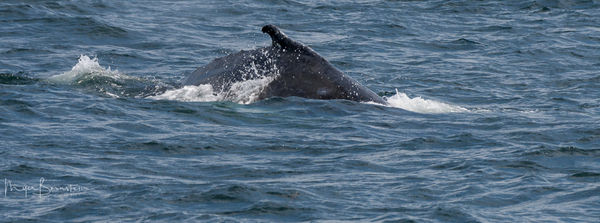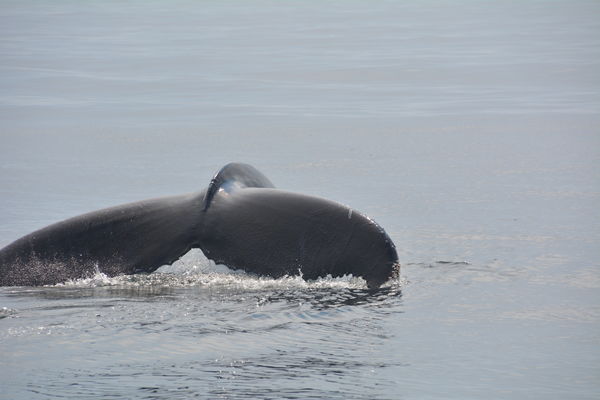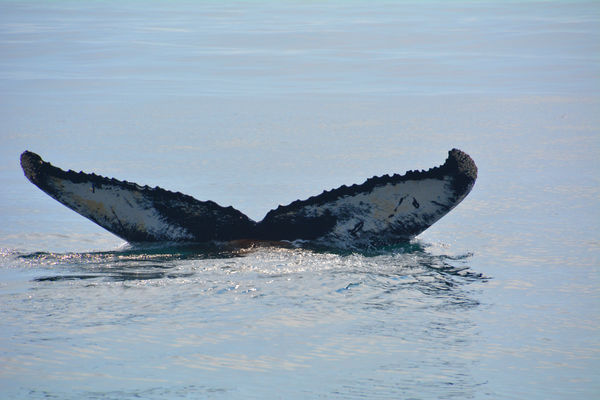Tips for Whale watching photo shoot.
Jul 31, 2017 09:25:53 #
touseefimam
Loc: Buffalo, NY, USA
Hi everyone, I am going to Maine next week for whale watching. I am using Nikon D7000 with two kit lens (18-140mm and 55-300mm) and (50mm and 85mm). Which lens should I use for whale watching? DO I need to use polarizer filter?
For Mountain photo shoot which lens should I use? Do I need tripod?
Thanks
For Mountain photo shoot which lens should I use? Do I need tripod?
Thanks
Jul 31, 2017 09:52:47 #
Depends how many Whales show up and show off,! I went once in the '80's using a Camedia camera, Ang got the show of my life, breaching whales, one came up along side the boat rolled over to look at us, just went 2 weeks ago with my new Nikon and 16-300 lens saw two whales logging (sleeping) on the surface, got two tail shots, a bit disappointed about this trip. But Whales move around a lot! Went out of Gloucester Ma. Normally the best because it's closer to the feeding grounds! WARNING! go buy some "cheap" UV lenses to protect your main lens glass from mucous spray from whales, very nasty stuff that eats glass! Enjoy, wishing you lots of whales because they are so beautiful and extremely animated!
Jul 31, 2017 10:11:29 #
I suggest the 55-300 mm as sometimes the whales are further away. You should consider an higher ISO so you can increase shutter speed. Also put camera into continuous shooting mode (shutter) as typically by the time you see the whale broaching you need to act quickly. Another thing to try is manual focus, prefocus the camera where you think the whale will be, saves time for the camera to focus. Try both manual and auto focus and see which works better for you. We try to get in the very front of the boat so we can see both sides plus the Captain usually points the boat towards the whales. Good luck!
For mountain, I assume you mean landscapes. I would use the smaller lens (18-140) and a tripod would help.
For mountain, I assume you mean landscapes. I would use the smaller lens (18-140) and a tripod would help.
Jul 31, 2017 10:19:20 #
I've been whale watching in California, Oregon, Washington, & Alaska. If you are on a boat, there is little use for a tripod--and they will only limit your movement. Up the ISO, if needed. A lens Hood to prevent flare and a polarizer will help. Engage VR if warranted. I've been close in a sea kayak (they surfaced) but otherwise the boat should not be approaching the whales for their protection. Take the longer lens. I'd even recommend renting something like the 200-500 or a Sigma 50-500.
Jul 31, 2017 10:56:58 #
55-300 Shutter speed 1/1250 with Auto ISO hand hold on the boat and a towel. I use Long Lens
Jul 31, 2017 14:47:41 #
Jul 31, 2017 17:50:43 #
LoneRangeFinder wrote:
I've been whale watching in California, Oregon, Wa... (show quote)
Sometimes the whales don't follow the laws and will approach the large boat because they are interested. Our boat Captain did not break the law, the whale did. But yes Federal law requires boats to stay 200 yards away from all whales. Whales do not read very well and do as they please. I use the 16-300, here's a photo at 250 yards at 200mm, ISO 400, 1/2000 sec
Jul 31, 2017 17:57:52 #
No tripod, people are running from one side of the boat to the other, good chance someone will trip on it and send it overboard. Besides unless the ocean is as smooth as a baby's butt, which it is hardly ever, you need to ready for fast action, and rolling waves. Whale activity is pretty much spontaneous, quick action, they like to keep you on your toes. And no they do not stop to pose. Again, have a great time, be ready for anything, find a seat on the boat near a post or wall but close to the gunwale, People don't care about you taking pictures, they are all for themselves you could get a lot of unwanted head shots. Remember the cheap UV lens to protect your big lens glass, whales breath is full of mucous and that stuff will eat the glass. I bring lens wipes by the box just in case.
Jul 31, 2017 18:38:08 #
I try to sit on the upper deck if there is one. I use an 18-105, no filter. I also recommend rapid exposures as things happen fast. The second shot you can see the humpback's eye checking me out!
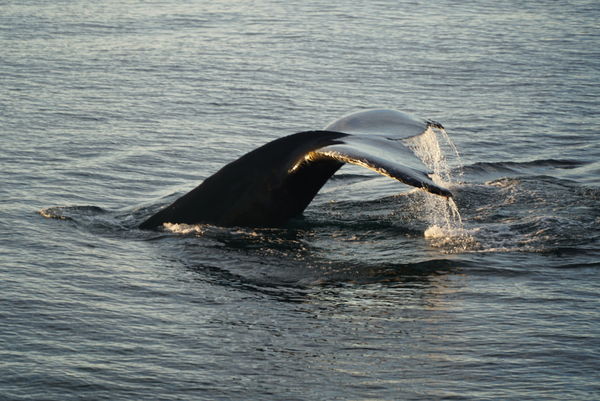
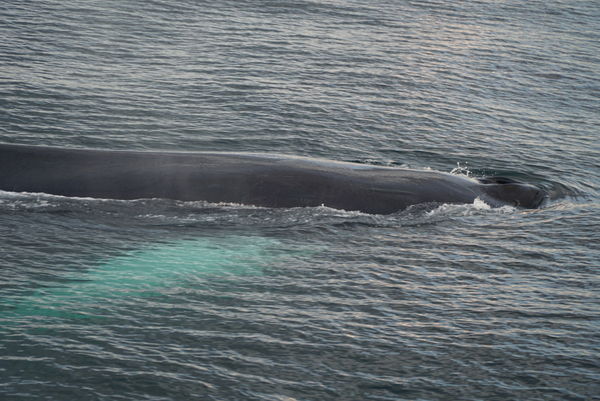
Jul 31, 2017 18:46:37 #
Jul 31, 2017 20:52:33 #
Tet68survivor wrote:
Sometimes the whales don't follow the laws and will approach the large boat because they are interested. Our boat Captain did not break the law, the whale did. But yes Federal law requires boats to stay 200 yards away from all whales. Whales do not read very well and do as they please. I use the 16-300, here's a photo at 250 yards at 200mm, ISO 400, 1/2000 sec
Yes. I only mentioned the longer focal length with respect to the distance. I was kayaking in a group and a whale breached within 10' of another kayaker. The guide instructed them to knock oars and move away. This was in Alaska.
Jul 31, 2017 22:16:19 #
touseefimam
Loc: Buffalo, NY, USA
Thank you very very much everyone. I really got new info about whale watching.
Aug 1, 2017 06:19:04 #
touseefimam wrote:
Hi everyone, I am going to Maine next week for whale watching. I am using Nikon D7000 with two kit lens (18-140mm and 55-300mm) and (50mm and 85mm). Which lens should I use for whale watching? DO I need to use polarizer filter?
For Mountain photo shoot which lens should I use? Do I need tripod?
Thanks
For Mountain photo shoot which lens should I use? Do I need tripod?
Thanks
I wouldn't want to change lenses on a whale boat. The 55-300mm should be good. A CPL, too.
Aug 1, 2017 06:47:58 #
You will not be able to use a tripod - they are not allowed to be used. These boats are very crowded and it would be a hazard to other passengers and wouldn't be any good in this situation anyway. I've been on a number of whale watch trips and love them, but you do stand a good chance of getting your equipment sprayed by salt water. I had a Canon F1 (years ago) drenched with salt water and off to the camera shop, but it never was the same. It would be even worse with digital. I wear a large rain jacket and can keep my camera somewhat protected under it.
Aug 1, 2017 06:51:48 #
touseefimam wrote:
Hi everyone, I am going to Maine next week for whale watching. I am using Nikon D7000 with two kit lens (18-140mm and 55-300mm) and (50mm and 85mm). Which lens should I use for whale watching? DO I need to use polarizer filter?
For Mountain photo shoot which lens should I use? Do I need tripod?
Thanks
For Mountain photo shoot which lens should I use? Do I need tripod?
Thanks
Polarizer filter....yes. My choice would be the 18-140 and leave the rest at home. There will be a lot of motion on the boat.
If you want to reply, then register here. Registration is free and your account is created instantly, so you can post right away.



